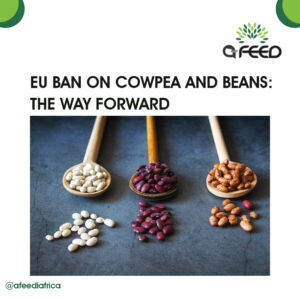The European Union placed a ban on the importation of beans and cowpeas from Nigeria in 2013 for a period of one year. This was as a result of the uncontrolled use of pesticides on the crops, as stated in the amended 2015/943 EU regulation.

In June 2016, the ban was further extended and it was set to be lifted in 2021 – this year.
Mr Shittu Mohammed, National President, Cowpea and Beans Farmers Processors and Marketers Association of Nigeria, expressed his worry over the situation and further spoke about how the inability of Nigeria to export beans has negatively impacted the country’s economy.
However, things turned sore when the European Union declared that it would no longer lift the ban this year. The ban has now been extended to June 2022.
This was a huge blow to the Cowpea and Beans Farmers Processors and Marketers Association of Nigeria. Moreso, in early 2020, Mr Mohammed had been hopeful of an end to the EU ban this year. In his words,
“We are trying to get silo from the government for the 36 states, where we can store our beans. We are also working at setting up laboratories in the states where the National Agency for Food and Drug Administration and Control (NAFDAC) can test the beans before export. This is to ensure that no beans go out of the country without properly being tested,” Mr Mohammed said.
“We are also working to put farmers in clusters to enable them get proper training and access to mechanisation, inputs, improved varieties and all that they need to increase production,” he said.
The EU justified its decision for the extension by pointing out the fact that Nigeria failed to carry out the 2018 food safety action plan.
It is evident that while the conduct of the farmers is not rationalised, it is influenced by the lack of adequate support from the government.
This begs the question: what can the Nigerian government do to restore the credibility of the farmers with regard to its Ease of Doing Business, job creation, poverty eradication and industrialisation policies?
Government should put measures in place that would aid the farmers and dissuade them from resorting to unfavourable means to ensure the safety of their products. This includes enlightenment of crop farmers about the dangers of using certain chemicals, they should also be supported with structures that would help with proper storage of their harvest.
Apart from improving the export of beans and cowpeas in the country, it would also encourage farmers to engage in the cultivation of the crops and help curb inflation within the country as a result of low supply of the produce.
Also, the EU does not need to impose a blanket ban; they need to recognize that the vast majority of our locally produced beans are grown organically and without the use of insecticides.
